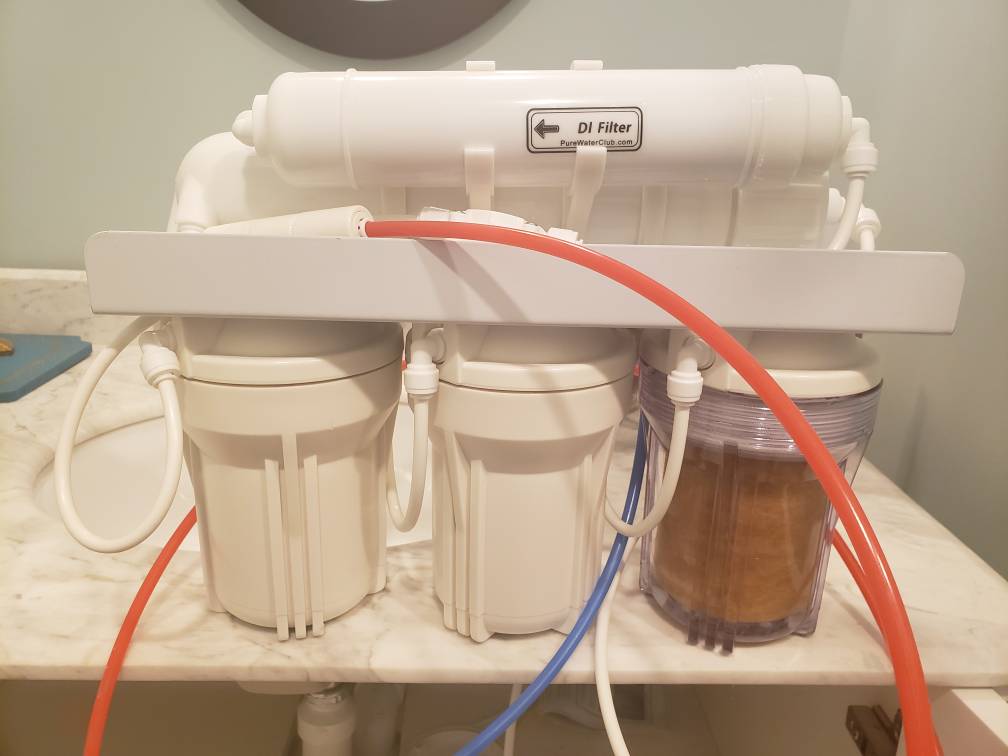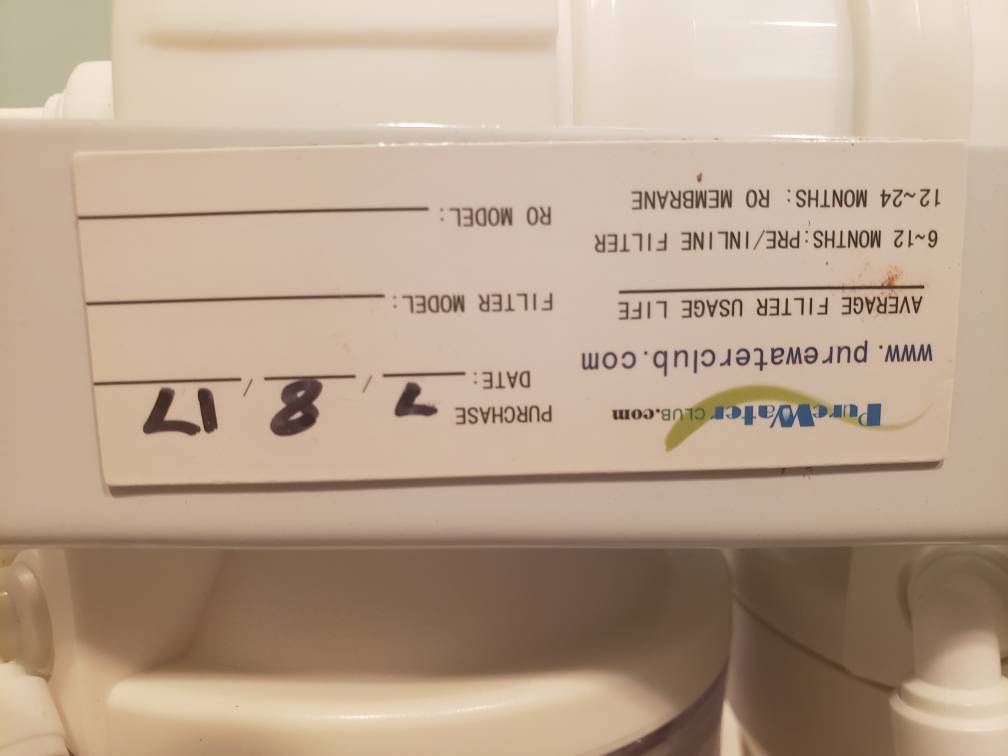I just bought a new house and there's a crappy old second kitchen in the basement that will make a perfect brewery.
RO has been on my radar as something I might later look into, but I found this sitting unused and disconnected in a cabinet. The previous owner had a fish tank, and theres a koi pond outside, so I assume that's what it was used for.
I emailed a picture to the company to ask what model it is. They haven't responded yet but it looks like this: http://www.purewaterclub.com/catalog/product_info.php?products_id=689. They have 3 models like that, 50GPD, 100GPD, and 150GPD. Not sure which this is.
Is it okay to use deionized water for brewing? From what I gather, it's better to drink water with minerals, but I'm not replacing my drinking water, just want to use it for brewing.
Also, can I make practical use of it without buying a tank to fill? I'd likely use it one or twice a month for roughly 10 gallons of brewing water each time.
Thanks!


RO has been on my radar as something I might later look into, but I found this sitting unused and disconnected in a cabinet. The previous owner had a fish tank, and theres a koi pond outside, so I assume that's what it was used for.
I emailed a picture to the company to ask what model it is. They haven't responded yet but it looks like this: http://www.purewaterclub.com/catalog/product_info.php?products_id=689. They have 3 models like that, 50GPD, 100GPD, and 150GPD. Not sure which this is.
Is it okay to use deionized water for brewing? From what I gather, it's better to drink water with minerals, but I'm not replacing my drinking water, just want to use it for brewing.
Also, can I make practical use of it without buying a tank to fill? I'd likely use it one or twice a month for roughly 10 gallons of brewing water each time.
Thanks!





